Pundit says Pezeshkian should follow Khamenei in foreign policy

Saeed Laylaz, a supporter of president-elect, Masoud Pezeshkian, said it would not be in his interest to act without the lead of the Supreme Leader on foreign policy.

Saeed Laylaz, a supporter of president-elect, Masoud Pezeshkian, said it would not be in his interest to act without the lead of the Supreme Leader on foreign policy.
In an interview with KhabarOnline, he stressed the critical role of Khamenei in shaping Iran's foreign policy, saying, "I don't see it at all in the interest of Pezeshkian to make even the smallest move in the field of foreign policy without Khamenei's permission and approval."
The comments follow fears amid the presidential campaign that he may veer away from previous president’s approach.
Laylaz stressed the complexity of the Joint Comprehensive Plan of Action (JCPOA) nuclear discussions which now face the new president.
Iran’s ongoing nuclear program has seen the country slammed with global sanctions thrusting the Iranian population into a dire economic crisis.
He noted, "The era of election slogans is over. We must take into account Iran's national and geopolitical interests.”
He said the JCPOA issue is “more complex than what was raised in the debates” calling for discussions with the country’s security, military, economic, and political experts, “in 100% interaction with the Supreme Leader."
Iran’s Supreme Leader holds ultimate control over the country’s economic, political, social and military workings.

Iran's Former Science Minister, Mostafa Moeen, revealed that students at Tehran University during the protests of July 1999 were “attacked at night” and had their “arms and legs broken” after being “thrown off from the roof".
Speaking candidly for the first time about the tragedy on the eve of its 25th anniversary, he told the KhabarOnline news website, “It happened even to a foreign student… I visited a Pakistani PhD student in the hospital who had a broken arm and leg. The student was a victim without having committed any sin".
The protests begun by Tehran University students, also known as the Kuye Daneshgah Disaster, were sparked by the closure of the reformist newspaper, Salam.
Iranian police and plainclothes security forces attacked protesters and set fire to their dormitories in echoes of the 2022 uprising. The protests quickly spread from the capital to other cities in Iran.
At the time, Amnesty International said that despite the students’ peaceful protest, “police fired tear gas at the students, and they were attacked by members of a state-sanctioned militia group, Ansar-e Hezbollah, who, along with the police, forced their way into student dormitories in Amir Abad, Tehran, beating and ill-treating students and destroying their property.”
The rights group also found students had been tortured including being "whipped on the feet with metal cables, suspended by their limbs, and in at least one case, forcing a detainee’s head into a toilet full of excrement, causing partial drowning".
The protests occurred during the presidency of Mohammad Khatami who refused to support the students. Despite over a thousand arrests and the brutal crackdowns, Iran's judiciary only tried a few low-ranking soldiers, sentencing one to three months in prison and a fine for theft during the raid. All other attackers were acquitted.
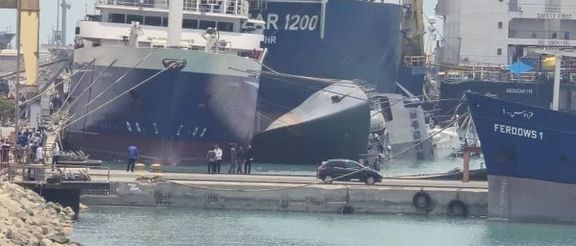
The Iranian Navy’s "Sahand" destroyer was involved in an accident during repairs at a port on the coast of Bandar Abbas on Sunday, with unconfirmed reports of casualties.
IRGC-affiliated Tasnim News agency reported that the 96-meter (315-foot) vessel which was being repaired at the dock, lost its balance due to water infiltration into the ballast tanks.
The warship tilted and became partially submerged, but according to state media it is now being refloated and repaired.
"As Sahand was being repaired at the wharf, it lost its balance due to water ingress. Fortunately... the vessel is being returned to balance quickly," the official news agency IRNA reported, citing a navy statement.
In an interview with Fars News Agency, Salman Zarbi, the head of Iran Shipbuilding & Offshore Industries Complex (ISOICO), said immediately after the incident that there was still a possibility of repairing and making the vessel operational.
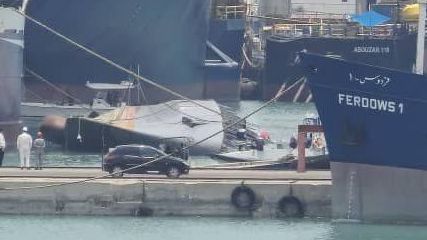
Reports indicate that the Navy frigate Sahand was being readied for an anti-piracy patrol mission in the Indian Ocean, with parts of it now underwater.
The frigate recently led a flotilla of Iranian vessels deployed to the Red Sea and Gulf of Aden amid attacks by Iran-backed Houthis on commercial ships in the region.
Sahand is a Moudge-class frigate in the Southern Fleet of the Navy, named in memory of the sunk frigate bearing the same name of the Sahand volcano. According to state media, the Sahand joined Iran’s Navy fleet in 2018 and is equipped with cruise missiles and stealth technologies designed to evade enemy radars.
Back in 2021, extensive diplomatic campaign by the US prevented the Sahand from docking in the Western Hemisphere after it was thought to be conducting a potential arms transfer and headed to Venezuela. It was headed toward Venezuela but finally changed course in June and went towards the west coast of Africa, US officials said at the time.
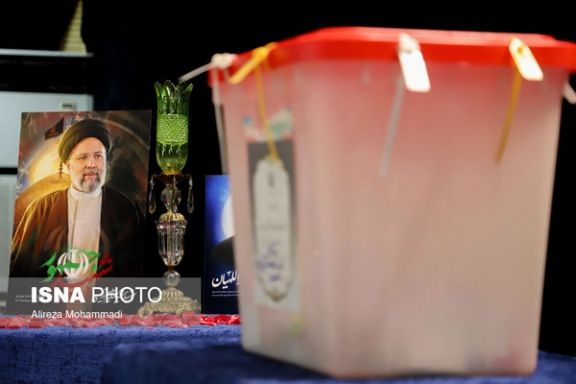
The official results of Iran’s presidential election runoff have been announced, yet doubts have emerged regarding the veracity of the figures.
According to the final vote count announced by Iran's Interior Ministry, 49.8 percent of eligible voters cast their ballots. Out of the 30,530,157 ballots cast on Friday, Masoud Pezeshkian secured 16,384,403 votes (53.6%), while Saeed Jalili received 13,538,179 votes (44.3%). Additionally, 607,575 votes were deemed invalid, representing 2% of the total.
However, observers have voiced their skepticism about the figures, one of the primary concerns being the significant reduction in invalid votes, despite an increase in voter turnout.
In the first round, the number of invalid votes was reported to be about 1.06 million. However, in the runoff, this figure nearly halved to approximately 607,000, a difference of around 448,000 votes.
Iran International TV Journalist and political commentator Ali Hossein Ghazizadeh highlighted on X the improbability of over 6 million votes being cast in the final four hours of voting. He noted, "This number is not only unprecedented but also practically impossible."
He explained that rural polling stations and those in small towns typically close before 10pm, and even in large cities, late-hour crowds are only seen at major polling stations. Peripheral areas experience virtually no crowds, making it practically impossible to collect such a high number of votes in the final hours.
Iran International Journalist Shahed Alavi also pointed out "strange examples" of possible electoral number manipulation, citing specific time intervals with unusually high vote counts:
"Vote statistics are released hourly, and every 15 minutes in the afternoon from the Ministry of Interior. A detailed review of the numbers, the disproportionate increases, and reports of empty polling stations suggest extensive number manipulation by the Election Headquarters to satisfy Ali Khamenei," wrote Alavi on X.
For the first time, unlike in any previous presidential elections, Supreme Leader Ali Khamenei remained conspicuously silent after last week's low turnout for the snap elections until Wednesday.
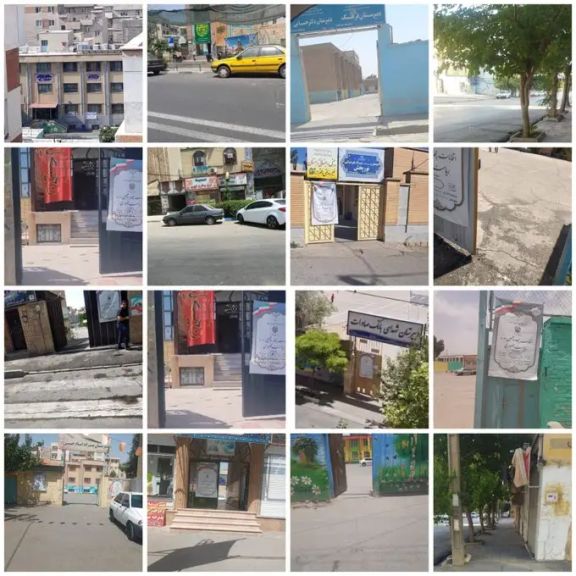
When he finally spoke, he did not refer to the election as "an epic," a term he typically uses. Instead, he acknowledged that the turnout was "less than expected" and expressed hope that the runoff would show better results.
Indeed, while the turnout is higher, it is not excessively so. The figures for Masoud Pezeshkian are not overly high, which could signal to the reformist faction to stay in line, as Khamenei’s hardliner insiders desire, Alavi pointed out.
They view the reformists as a faction they oppose. Additionally, the narrow margin between hardliner Jalili and reformist Pezeshkian ensures that both factions remain aware of each other's presence. In previous elections, the difference between the winner and the runner-up was typically much larger.
Iranians opposed to the Islamic Republic widely expressed skepticism on social media about the higher runoff results. Many also sent voice messages to Iran International expressing doubts that one out of two people voted on Friday. In the absence of independent courts, civic organizations and media in Iran, it is almost impossible to vouch for any government numbers, whether election results or economic data.
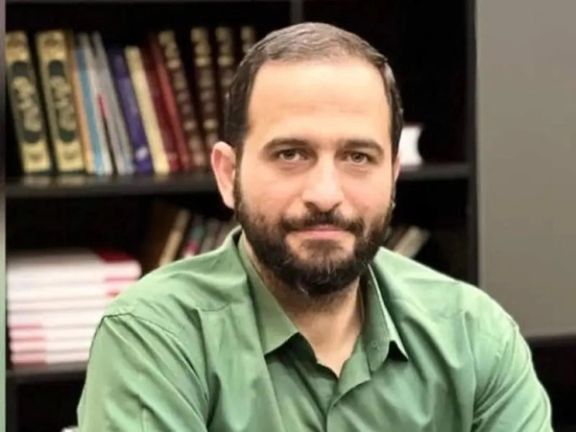
Iranian lawyer and rights activist Mohsen Borhani has been imprisoned for speaking out against the government.
During a speech during Pezeshkian’s presidential election campaign, he referred to the suppression of Iran’s security forces' use of “batons, electric shockers, and pellet bullets” during the nationwide 2022 uprising sparked by the death of Mahsa Amini in morality police custody.
Borhani was transferred to prison to serve a prison sentence according to Iran's judiciary media outlet, Mizan on Saturday.
"Convicted earlier during the handling of a legal case in the judicial courts, Mohsen Borhani's sentence was finalized, and he was subsequently summoned to prison to serve his sentence," Mizan wrote.
Last August, a joint case by multiple Iranian security and intelligence institutions was filed against Borhani following his criticism of the government for suppressing citizens, especially women flouting hijab laws.
He was also fired from his job at Tehran University amidst a purge of professors supporting the protests.
At the time, in a post on X, he announced that among those who had filed a case against him were Iran's Islamic Revolutionary Guard Corps (IRGC) Intelligence Organization and a member of the Guardian Council, among others.
"How many against one?" he added.
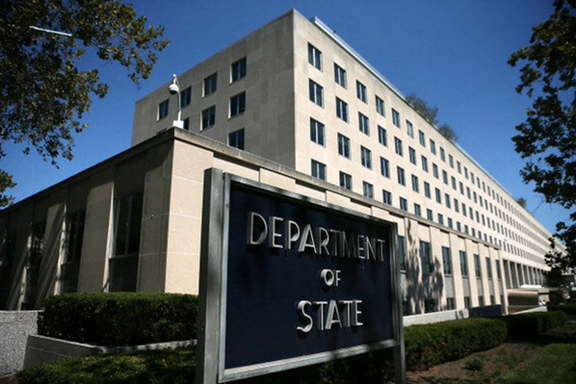
The Iranian elections will not have a major impact on the Biden administration's approach to Iran, a US State Department spokesperson told Iran International on Saturday, a day after moderate Masoud Pezeshkian won the country's run-off presidential vote.
"The elections will not have a significant impact on our approach to Iran... Our concerns about Iran’s behavior are unchanged. At the same time, we remain committed to diplomacy when it advances American interests," the spokesperson said.
The first round of Iran's snap presidential election saw a voter turnout of 39.92%, the lowest in the history of the Islamic Republic. In the runoff votes, the official figures show a 10-percent rise in the number of voters, but still over 50 percent of eligible voters boycotted the election.
"The elections in Iran were not free or fair. As a result, a significant number of Iranians chose not to participate at all," the US State Department spokesperson said. "We have no expectation these elections will lead to fundamental change in Iran’s direction or more respect for the human rights of its citizens."
Several Iranian opposition figures have called on Western powers not to engage with the new government of Iran.
Iran's exiled Prince Reza Pahlavi on Saturday referred to the election as the Islamic Republic's "fraudulent" attempt to legitimize its dictatorship.
In his first post-election speech on Saturday, Pezeshkian thanked Iran's Supreme Leader Ali Khamenei, and said "If it wasn't for him, I don't think my name would have easily come out of these (ballot) boxes."
During his election campaign, Pezeshkian had pledged to his supporters that he would implement the policies set by Khamenei.
He said in one of the televised debate that the U.S. must fulfill all its commitments for Iran to return to the the nuclear deal, known as JCPOA.
Under the 2015 nuclear deal, Iran agreed to reduce its nuclear capabilities in exchange for relief from economic sanctions. In 2018, Trump pulled out of the deal and imposed ‘maximum pressure’ sanctions on Tehran.